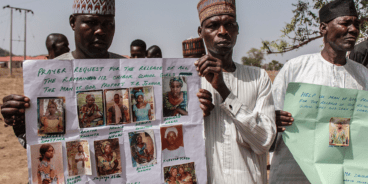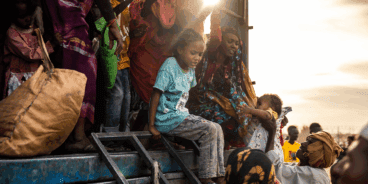
Open Letter to the Security Council on the Situation in Syria
The United Nations Security Council must strongly condemn the unrelenting attacks by the Syrian government on its own people and call for an immediate cessation to the violence. The government’s brutal crackdown in response to protests that began in mid-March has already claimed the lives of close to 1,000 Syrians, with over 10,000 more detained and unknown numbers wounded and tortured. These attacks appear to rise to the level of crimes against humanity, crimes that states committed themselves to protect populations from in adopting the responsibility to protect in 2005. Over the past three months the Syrian government has systematically failed, and continues to fail, to uphold its primary responsibility to avert and halt the commission of atrocities.
Political reforms announced by President Bashar al-Assad’s regime and promises that the security forces will exercise restraint have not been fulfilled. The regime has instead responded to protests with oppression and brute force which, rather than stabilizing the situation, have only escalated tensions and heightened the risk of atrocities. The security forces have shown no restraint, using live fire ammunition against unarmed protesters and, in cities such as Deraa, they have relied on tanks and other heavy weaponry. Today the town of Jisr al-Shughur is surrounded by security forces and much of its population has fled in advance of an expected government attack. Although independent media access and communication services have been restricted, sufficient information is available pointing to a grave risk of future atrocities necessitating attention and action by the Security Council.
As the Centre noted in its 26 April statement, Syrian President Bashar al-Assad and other government officials continue to argue that the unrest is being instigated by “armed groups.” While some protesters may be armed, available reports suggest that their numbers are low. By characterizing unarmed civilians, including children, the elderly, medical professionals seeking to reach the wounded and those participating in funeral processions, as armed militants the threat of atrocities perpetrated against these civilians is dramatically heightened. It should be stressed that the presence of armed militants in no way justifies the repressive and lethal tactics being used by the government against the largely unarmed population. Nor can their presence be used to legitimize inaction by Council members.
The Security Council has a responsibility to take action in situations where populations are experiencing or at imminent risk of mass atrocities. In recent years it has shown its willingness to act in accordance with this responsibility to protect. Through presidential statements and resolutions the Council has constructively engaged to prevent atrocities and protect populations in such places as Kenya, Guinea, Cote d’Ivoire and Libya. In each case the Council has tailored its response to reflect conditions on the ground.
Security Council action on Syria should not be held hostage to concerns about the military operation in Libya. That a healthy and open debate about ongoing efforts in Libya is warranted is clear, but this should not prevent the Council from attending to the grave threats to populations in Syria. Nor should the Council’s preventive action in Syria be further delayed by concerns that a resolution condemning the repressive tactics of the regime will lead to military intervention. The responsibility to protect, while often erroneously described as being solely about military intervention, is focused on preventing crimes before they occur and in mobilizing all available levers to urge actors to halt the commission of atrocities. The basic premise of the responsibility to protect is that the international community must act if a government abdicates its responsibility and perpetrates atrocities.
Populations in Syria face, as the Special Advisors on the Prevention of Genocide and the Responsibility to Protect have noted, widespread and systematic attacks. As the situation continues to deteriorate refugee flows have grown and skirmishes on the border with Israel have begun to occur. The situation is clearly one that threatens international peace and security and necessitates Security Council action. At a minimum the full weight of condemnation by the Security Council must be brought to bear on the Syrian regime. The Security Council must call for an immediate cessation of the use of excessive and lethal force against demonstrators and demand that the regime release all those arbitrarily detained. The Council should: remind the government of its responsibility to protect; call on the government to allow humanitarian access to affected towns and cities; request that the government co-operate with an Office of the High Commissioner for Human Rights investigation into recent events; and consider the imposition of targeted economic sanctions and travel bans on those individuals known to be inciting, ordering or perpetrating atrocities against civilians. There can be no more delay.
Related Content


Atrocity Alert No. 460: Nigeria, Israel and the Occupied Palestinian Territory and Myanmar (Burma)
